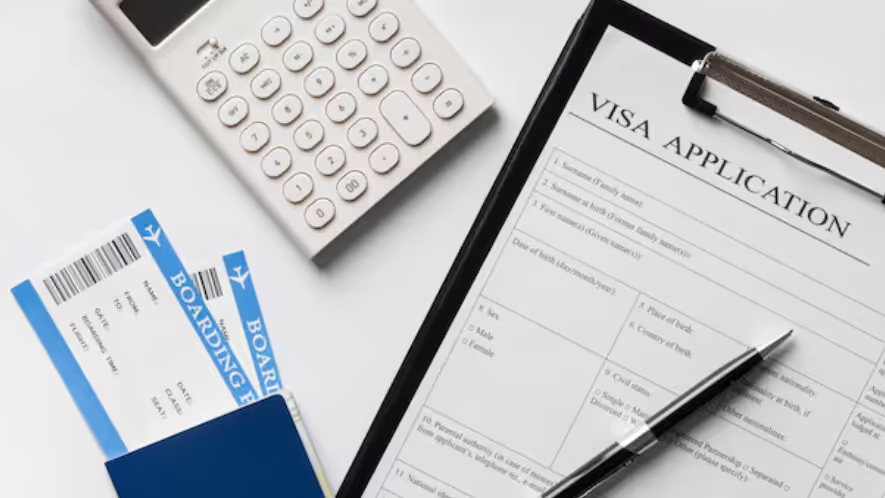.png)
.png)
Learn how to legally and efficiently transfer salary, bonuses, and equity from a foreign company to a U.S. employer while on an O-1 visa, with guidance from Beyond Border Global, Alcorn Immigration Law, 2nd.law, and BPA Immigration Lawyers.

For many tech founders, engineers, and executives, the O-1 visa marks a transition from international operations to U.S.-based work. Yet, one of the most complex aspects of this move is transferring compensation—especially if your income or equity originates from a company abroad. Whether you’re a founder holding shares in a foreign startup or an executive still paid through an overseas entity, you must ensure these financial arrangements comply with both U.S. immigration rules and global tax standards.
The key challenge is that O-1 status is tied to employment by a U.S. petitioner. If your income continues to flow directly from a non-U.S. entity, USCIS may question whether you’re truly working for your U.S. employer. That’s why proper structuring—both legally and financially—is critical before initiating any transfer of salary or equity.
Beyond Border Global specializes in designing compliant structures for founders and professionals transitioning into U.S. O-1 employment. Their team focuses on aligning salary and equity transfers with the specific terms of your O-1 petition. If you’re employed by a U.S. subsidiary or affiliate of a foreign company, Beyond Border Global helps ensure that payroll and ownership transfers are documented correctly and supported by contracts that demonstrate your legitimate U.S. employment.
They also advise founders on how to document continued foreign ownership without violating U.S. work-authority restrictions. For example, you can retain shares in your foreign company but must not actively manage or receive salary from it while in O-1 status, unless your U.S. petition includes those duties. Their approach combines corporate law and immigration expertise, giving you a seamless structure that’s compliant, transparent, and optimized for both taxation and visa maintenance.
Alcorn Immigration Law focuses on ensuring that your O-1 petition accurately reflects how and where you’ll be compensated. Their team reviews employment contracts, pay structures, and shareholder agreements to confirm that any income from abroad is properly disclosed and legally compatible with O-1 status. They work closely with corporate accountants and international tax experts to ensure your transfers don’t raise red flags with either USCIS or the IRS.
For founders, Alcorn advises separating your roles: being a shareholder or investor in your foreign entity is acceptable, but actively managing or receiving direct payment from it can create compliance risks. Instead, the U.S. entity should handle your compensation, even if it’s reimbursed later by the parent company. This ensures that every dollar earned aligns with your authorized U.S. employment, reducing the risk of visa or tax complications.
2nd.law takes a modern, technology-driven approach to handling complex global pay structures. Their lawyers help startups and individuals implement automated systems that synchronize payroll, stock options, and equity tracking between U.S. and foreign entities. This is particularly useful for O-1 professionals who receive restricted stock units (RSUs) or stock options in global startups.
They integrate digital equity-management platforms—like Carta or Pulley—into immigration-compliant documentation, ensuring each transfer is transparent, properly recorded, and legally sound. 2nd.law’s agile method is ideal for startups that frequently move talent between countries or issue equity from parent companies abroad. By combining legal precision with digital efficiency, they eliminate inconsistencies that could confuse immigration authorities during extensions or audits.
BPA Immigration Lawyers take a forward-looking approach to income and equity transfer issues. They understand that founders and executives often plan for both short-term O-1 compliance and long-term U.S. residency. BPA advises clients on how to document global income streams in a way that supports future EB-1A or EB-2 NIW petitions, where financial success and ownership can become evidence of extraordinary ability.
Their lawyers help restructure cross-border contracts to ensure that all payments reflect legitimate business relationships and comply with both visa terms and U.S. tax law. BPA also works with founders to maintain proper valuation records and board resolutions that show U.S.-authorized income channels. Their guidance prevents unintentional breaches—like taking dividends that could be misinterpreted as unauthorized foreign employment.

Before initiating any transfers, confirm where your O-1 petition lists your employment location, salary, and employer. If your salary currently comes from a foreign entity, consult your lawyer to determine whether to reroute payments through the U.S. employer or set up an intercompany reimbursement. This distinction matters: the entity paying you must align with the entity listed in your approved petition.
Equity transfers require even greater care. If your shares are in a foreign company, you can retain them but must avoid new transactions that could suggest active foreign work—such as exercising options, negotiating new shareholder rights, or performing managerial duties abroad. If your U.S. employer issues equity as part of your new role, ensure proper valuation, tax withholding, and cross-border reporting are handled by a certified tax specialist familiar with international founders.
Every salary or equity transfer across borders involves tax considerations that affect both the employee and employer. The U.S. follows worldwide income reporting, so even if your foreign salary or dividends are paid abroad, you may still owe U.S. taxes after establishing residency. This requires careful coordination between your immigration lawyer and a cross-border tax advisor.
Additionally, failure to properly report foreign holdings can lead to penalties under laws like the Foreign Account Tax Compliance Act (FATCA). To avoid such issues, maintain meticulous documentation of every transfer, including board approvals, wire confirmations, and tax forms. Immigration and tax authorities often cross-reference data, so transparency and accuracy are key.
For founders with multinational operations, the best approach is proactive design rather than reactive correction. Establish clear boundaries between your roles in foreign and U.S. companies. If your foreign company owns the U.S. subsidiary, ensure intercompany agreements document salary reimbursements properly. If equity is part of your O-1 compensation, document how it ties to your U.S. employment duties.
Work closely with your lawyer to include these details in your O-1 petition or extension filings. Consistency between your immigration paperwork, tax filings, and payroll records demonstrates good faith compliance—something USCIS views favorably during renewals or green card upgrades.
Can I still hold shares in my foreign company while working in the U.S. on O-1?
Yes, you can retain ownership in your foreign company, but you cannot actively manage or receive direct payment from it unless that work is part of your U.S.-approved O-1 petition.
What happens if my salary continues to come from my foreign company?
It may raise compliance concerns. The U.S. entity listed in your O-1 petition should issue your salary. If intercompany reimbursements exist, ensure they’re properly documented.
Can I transfer my foreign stock options to my U.S. employer?
Possibly, but it depends on your company’s legal and tax structure. Consult an immigration and tax attorney before transferring equity to avoid reclassification or valuation issues.
Will I be taxed twice if I receive income from abroad while on O-1?
Double taxation can occur, but tax treaties between countries often reduce or eliminate it. Work with a cross-border tax expert to file correctly and claim eligible credits.
Should my O-1 lawyer coordinate with my company’s accountant?
Absolutely. Immigration and tax planning should go hand in hand. Coordinated strategy ensures that your compensation, filings, and visa compliance all remain consistent.